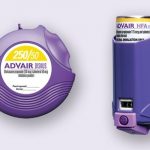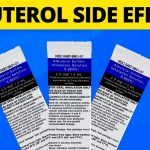
5 Effective Natural Fat Burners
Losing weight can be challenging, especially when relying on fad diets or struggling to maintain a healthy diet and exercise routine.
In today’s market, there is an abundance of fat-burning supplements and weight loss pills available. However, not all of these products are equally effective or safe. Some may contain low-quality or harmful ingredients that can lead to dangerous side effects.
While many fat burners claim to boost metabolism, reduce fat absorption, and promote fat burning, their efficacy is not guaranteed. It is always important to consult a healthcare professional before starting any natural supplement or fat-burning pill to fully understand the associated risks, benefits, and potential interactions.
5 natural fat burners
- Protein powder
- Protein is essential for losing fat and building muscle mass.
- Protein powder can aid in fat burning by boosting metabolism, suppressing appetite, and preserving muscle mass.
- Studies suggest that a high protein diet is more effective at burning fat than a moderate protein diet.
- For those who struggle to consume enough protein through food alone, protein powder supplements are a convenient option.
- There are various protein powder options available, such as whey, casein, soy, egg, and hemp protein powders.
- Choose a protein supplement that is low in sugar and additives and consume one to two scoops (25 to 50 grams) daily.
- Protein supplements should replace snacks or part of a meal rather than being additional to the diet.
- Fiber (soluble)
- Soluble fiber works by absorbing water, curbing appetite, slowing down nutrient delivery to the gut, and reducing calorie absorption.
- While most people can obtain enough soluble fiber from their diet, some may need to consider supplements like glucomannan or psyllium husk.
- Caffeine
- Caffeine, found in coffee, green tea, and cocoa beans, can boost metabolism and enhance fat burning.
- However, consuming excessive amounts of caffeine can lead to tolerance and negatively affect sleep quality.
- Limit daily caffeine intake to the recommended amount of 400 mg.
- Green tea
- Green tea extract, rich in compounds like caffeine and polyphenols, can enhance fat burning through thermogenesis.
- While green tea has no proven detrimental effects, excessive consumption of green tea extract may be harmful to the liver, especially on an empty stomach.
- Yohimbine
- Yohimbine, found in the bark of the Pausinystalia yohimbe tree, may aid in fat burning by blocking alpha-2 adrenergic receptors.
- However, more evidence is needed to support its effectiveness as a fat-burning supplement.
- Yohimbine may cause side effects, particularly for individuals taking medications for blood pressure, anxiety, or depression.
6 other natural fat burners
- Capsaicin: A substance found in chili peppers that promotes fat release, boosts metabolism, and increases norepinephrine production.
- Dandelion root extract: Derived from the root of the yellow-flowered weed, it has various medicinal properties.
- Garcinia cambogia: Derived from the rind of a sour tropical fruit found in Southeast Asia, it contains hydroxycitric acid, a natural fat-burning substance.
- Raspberry ketones: Chemicals produced by red raspberries that aid in fat breakdown.
- Probiotics: Good bacteria found in fermented foods or drinks that may enhance weight loss.
- Apple cider vinegar: Consuming it before a meal may increase satiety, reduce cravings, and improve digestion.
5 types of fat-burning supplements
Several other supplements are marketed, but their safety and effectiveness have insufficient credible data.
- 5-HTTP: An amino acid that may curb appetite and carb cravings.
- Synephrine: A substance abundant in bitter oranges.
- Green coffee bean extract: Preliminary research suggests it may aid in fat burning, but conclusive trials are lacking.
- Conjugated linoleic acid (CLA): A group of omega-6 fatty acids that may contribute to fat burning, but evidence is mixed.
- L-carnitine: A naturally occurring amino acid with mixed evidence for fat burning.
Do fat burners work?
Fat burners, whether natural or manufactured, are highly debated for their effectiveness in weight loss. Without regulation from food and drug authorities, promising weight loss claims cannot be guaranteed.
Manufacturers often market diet pills and fat-burning capsules as "miracle solutions" for weight issues or fat reduction. However, some of these products can be ineffective or even harmful.
Since everyone has a different metabolism and responds differently to supplements, there is no one-size-fits-all fat burner. The most effective and healthy approach to weight loss involves a balanced diet, sufficient sleep, reduced stress, and regular exercise.
3 advantages of fat-burning supplements
- Widely available and easily accessible
- May aid in fat burning when incorporated into a healthy routine
- Can enhance the effectiveness of health-promoting activities like exercise and a nutritious diet
7 disadvantages of fat-burning supplements
- May fail to substantiate weight loss claims
- Could contain harmful or banned ingredients
- May have detrimental effects on the body, such as liver or kidney damage
- Market presence without regulatory approvals from the U.S. Food and Drug Administration
- Reliance on manufacturer claims for safety and effectiveness
- Not a substitute for a nutrient-rich diet and regular exercise
- Potential interactions with other medications
4 FDA-approved prescription drugs for weight loss support
- Xenical (orlistat)
- Belviq (lorcaserin)
- Qsymia
- Saxenda (contrave liraglutide)


